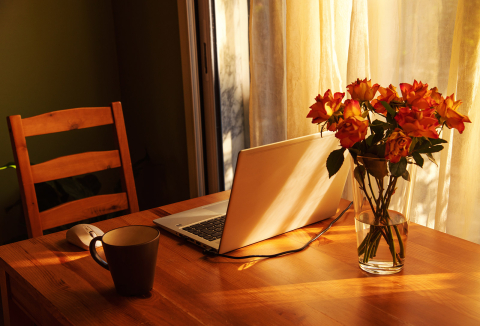We all need to be prepared to self-isolate if we get COVID-19. This checklist can help you and your whānau make a plan.
If you test positive for COVID-19, you must self-isolate for 7 days.
This means you cannot leave home to go to the supermarket, or to pick up essential supplies, like medication. You will need to have a plan for someone to collect them for you, or to get supplies delivered.
Most people who get COVID-19 will have a mild to moderate illness and can safely recover in their own home. For those who need help, the healthcare system will always be available.
Having a plan will make it easier when you need to self-isolate.

Household Contacts no longer need to isolate for 7 days.
If you live with someone who tests positive for COVID-19, we recommend you:
- take a rapid antigen test (RAT) each day for 5 days
- avoid contact with the person who has COVID-19.
Food and groceries
- Make a plan for how you will get food and essential supplies. You may want to ask friends, whānau or neighbours to do contactless drop-offs, or you can use a food delivery service.
- If you have friends or whānau who are self-isolating, reach out and ask if they need anything dropped off, or if there is anything you can do to help.
If you need support while self-isolating
Health and wellbeing
- Put together a hygiene kit with things like hand sanitiser, gloves, face masks, cleaning products and extra rubbish bags.
- If you have people in your household who need extra support, make a plan for their care. If you have shared custody arrangements, talk to your child’s other parent or caregiver to decide what will happen.
- Looking after your physical and mental wellbeing is important while you are at home. Try to think of ways you can get fresh air, or do some exercise. You can exercise outdoors in your neighbourhood — but you cannot use any shared facilities, like a public swimming pool. Keep a safe distance from others when exercising.
Looking after your mental wellbeing
Medication and prescriptions
- Check that you have basic medical supplies to help manage your symptoms. This could include pain relief, a thermometer, nasal spray, lozenges and your regular medications.
- If you are isolating and need medicine, you can contact your doctor or local pharmacy to arrange a delivery, or ask friends and whānau to collect it for you.
- Make a list of whānau information — include NHI numbers, any medical conditions and medications or medical supplies each person will need if they have to self-isolate. Include emergency contact information like your doctor, after-hours services, and any support agencies.
Work and study
- Talk to your employer and child’s school so you and your tamariki are set up for working and learning from home.
- If you cannot work from home, talk to your employer about your pay and sick leave entitlements.
Leave and pay entitlements during COVID-19 | employment.govt.nz
Your living situation
- Everyone’s living situation is different — you may be in a large family, living with flatmates, or you may live alone. For some people, it will be easier to limit contact with other household members if they have access to their own bathroom and bedroom. Talk with the people you live with to make a plan for how you will manage any shared spaces.
- Share your plan with wider whānau and neighbours and talk to them about what you will need them to do and how you can help each other.
Staying connected
- Make a list of activities you can do to help pass the time.
- Have a plan with friends and whānau to stay connected online.
Animals
Check you have enough pet food and supplies. If you are unable to look after a pet, ask someone else to care for them while you are self-isolating.
Work out how to let people know you are self-isolating. This could be a sign for your front door or fence.